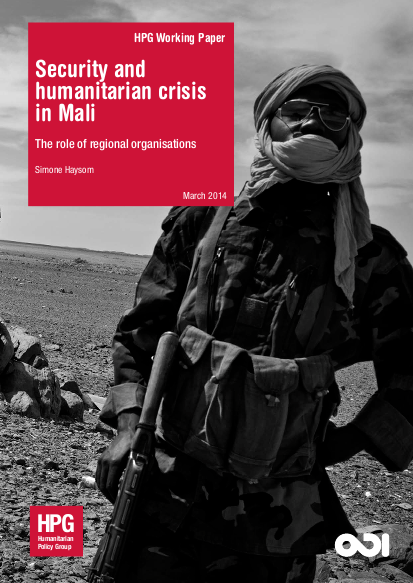
Throughout most of 2012 Mali was in a state of deep crisis. Its political institutions were in disarray following a military coup. Its territorial integrity was threatened by a secessionist conflict in the north with the National Movement for the Liberation of Azawad (MNLA) and other actors, and its people were facing displacement, acute hunger and violence. Some of the most active responses to this state of affairs came from Mali’s neighbours, in the form of diplomatic interventions by the Economic Community of West African States (ECOWAS) and eventually an African Union (AU)-led push for a UN-authorised military intervention. This Working Paper explores the role played by ECOWAS and the AU in addressing the crises in Mali. It is part of a research project entitled ‘Zones of Engagement: Regional Organisations and Humanitarian Action’, being undertaken by the Humanitarian Policy Group (HPG) as part of its 2013–2015 Integrated Programme. The project is designed to explore the role of regional organisations in humanitarian action, the rationale for their involvement and the degree to which their approaches may or may not differ from the approach of the UN. The paper mainly concerns the period from January 2012 to August 2013. The analysis covers three phases: the origins and underlying causes of the crisis (discussed briefly below); the outbreak of conflict, political instability and the French-led intervention (in Section 2); and the handover from the African-led International Support Mission to Mali (AFISMA) to the UN (Section 3). The aim is to explore the evolution of the crisis in Mali, its humanitarian consequences and the role of regional organisations in the response, with a particular concern for the high-profile role played by ECOWAS. The paper concludes with a brief analysis of current humanitarian needs and protection concerns, and the role of AU and ECOWAS humanitarian mechanisms in addressing them. This report is a desk-based study drawing on academic literature, think-tank and policy reports and news articles and limited consultations with experts.